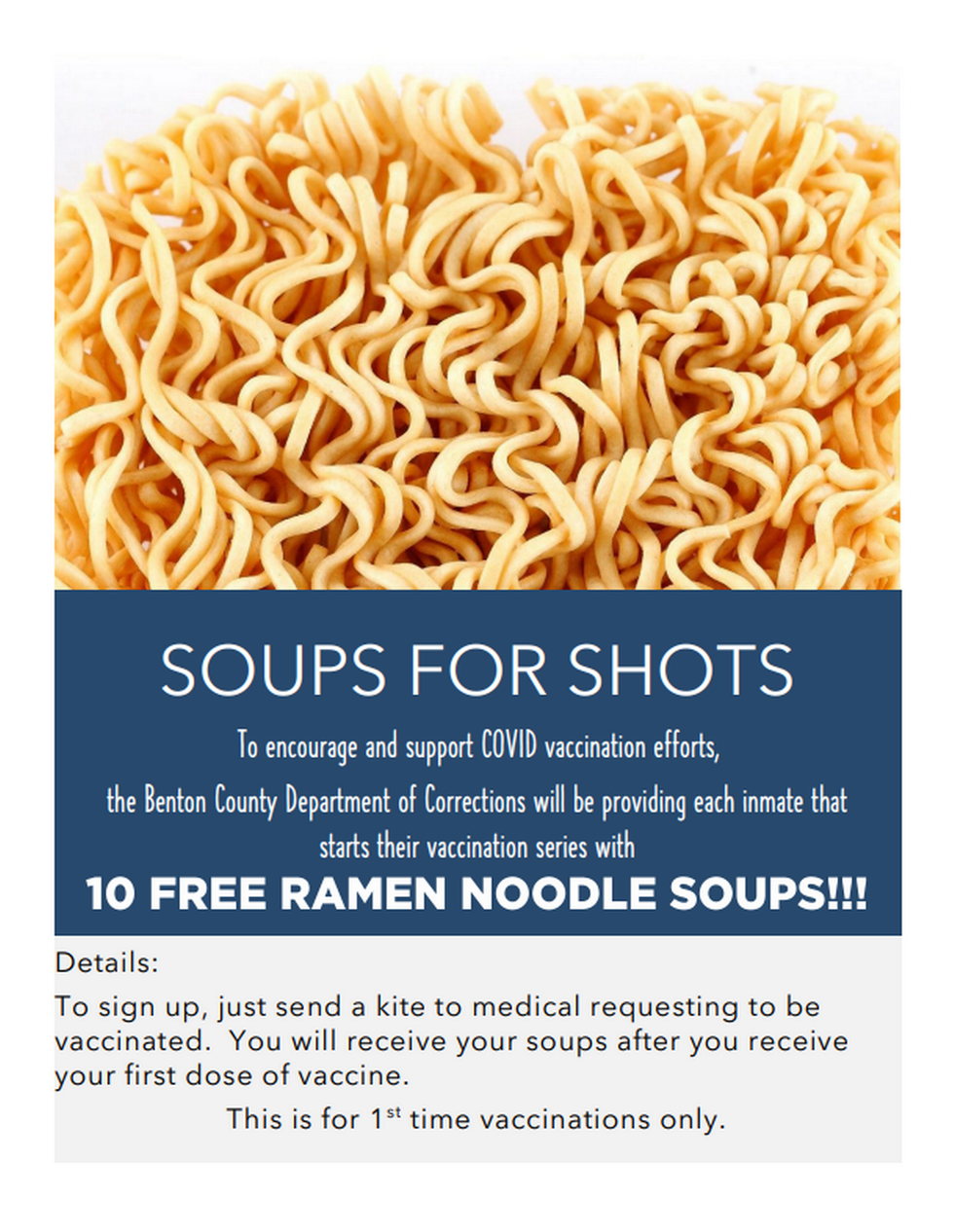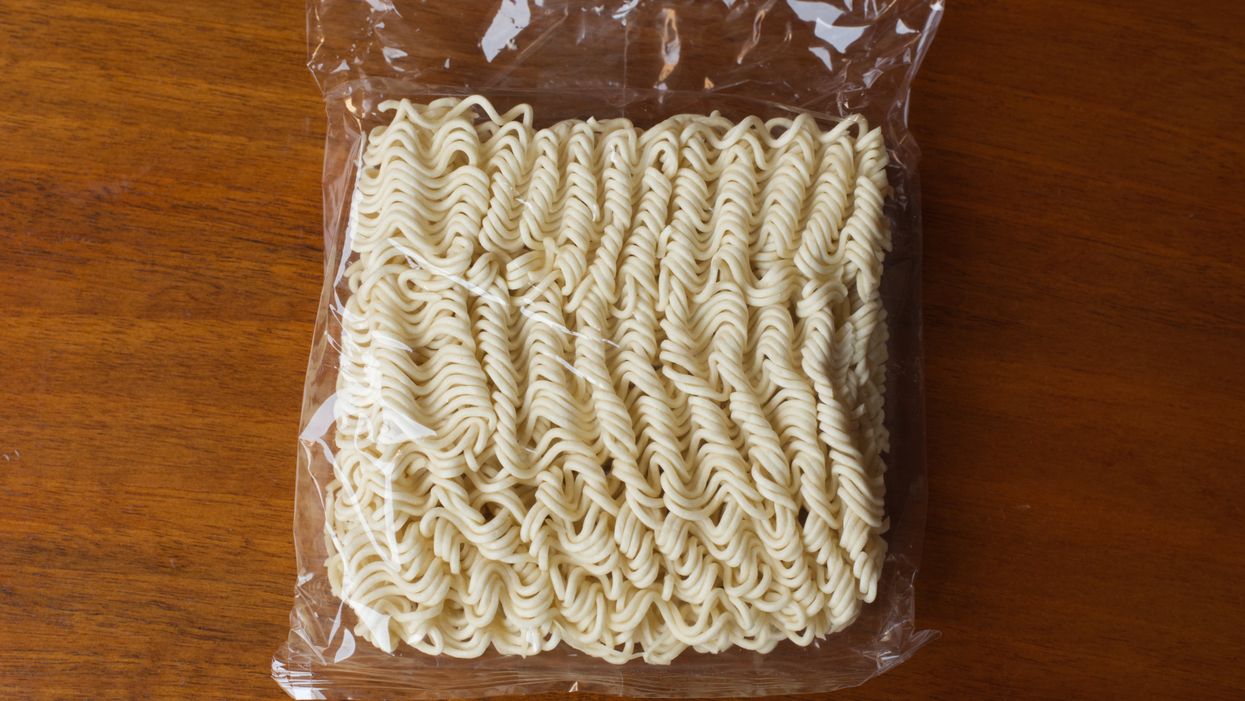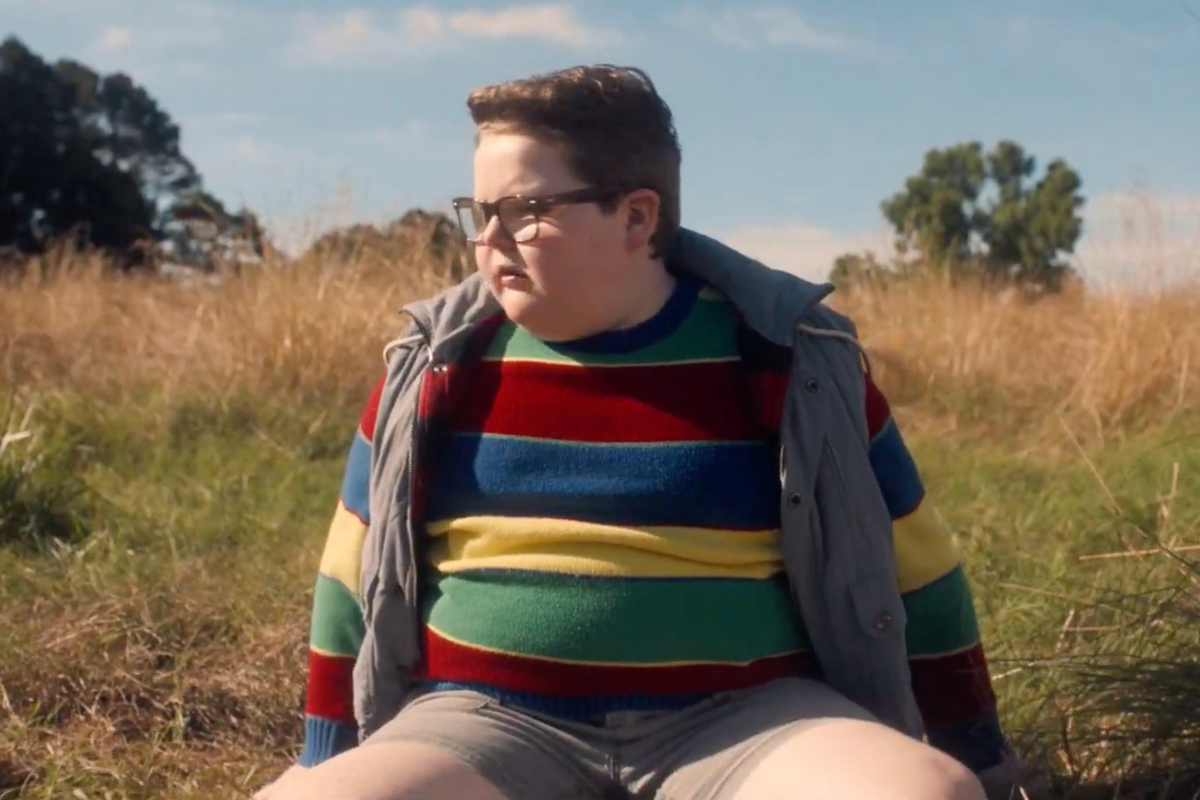A Washington State jail has come up with an inventive but slightly bleak vaccine incentive, offering inmates ramen noodles in exchange for getting vaccinated against COVID-19.
It’s certainly an unusual incentive, but ramen noodles are actually one of the most popular commissary items at Benton County jail, according to The Olympian who first reported the story. Thus, it makes sense that the plan is seeming to work: According to Scott Souza, chief of corrections for the Benton County Corrections Department, 900 packets of noodles have been distributed to 90 now-vaccinated inmates since the program’s launched at the start of August. There are currently 360 people housed in the jail, which is located in Kennewick, Washington.
The unconventional vaccine determinant has been coined “Soups for Shots” by the corrections staff who created it, and is currently being promoted via gargantuan posters with vivid imagery of ramen noodles all over the jail.

“To encourage and support COVID vaccination efforts, the Benton County Department of Corrections will be providing each inmate that starts their vaccination series with 10 FREE RAMEN NOODLE SOUPS!!!” the posters read.
“We’re doing everything we can do to incentivize vaccination and we are getting outstanding response,” Souza said of Soups for Shots, adding that all inmates are eligible, regardless of how short or long they’ve stayed. The only requirement is that they’ve not yet been vaccinated.
While Benton County Jail is the first facility to specifically offer ramen noodles, they’re not the only jail or prison trying to convince inmates to get vaccinated with incentives. ABC News reported that Alabama is offering $5 in canteen credits to all inmates who get vaccinated, for example, and Sedgwick County Jail in Wichita, Kansas is now offering $10 in commissary items to inmates who get the jab, according to KWCH-TV.
“The goal is to mitigate COVID-19 in the jail as much as possible. It’s a correctional environment,” Lt. Jared Schechter told KWCH-TV. “We’re running at capacity or more above capacity today on inmates, and so social distancing is very difficult to do in a correctional environment.”














